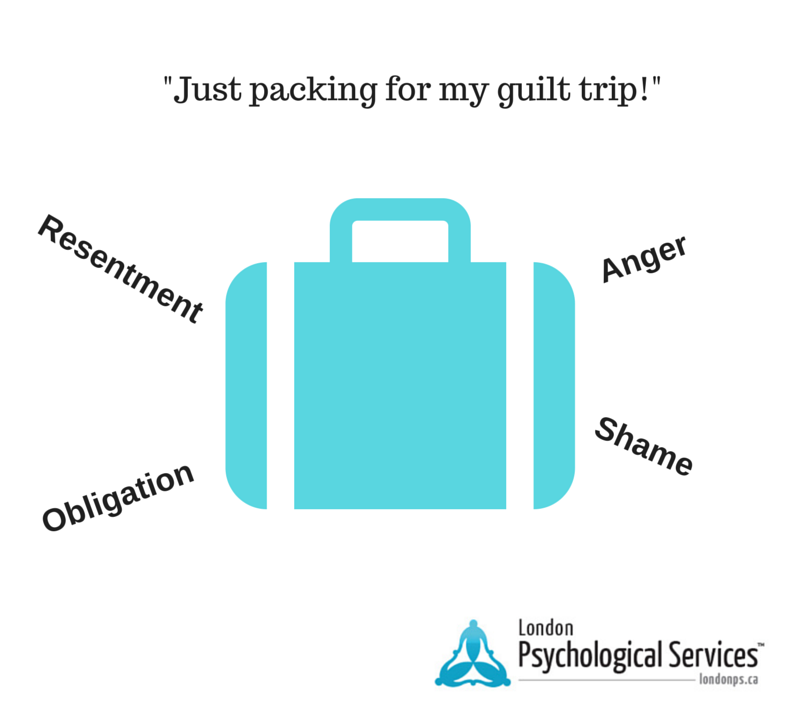I recently a took a week away from my counselling practice in London, Ontario to have some down time, spend time with my family and re-energize. I didn’t have a ton of plans other than a few days away. Minimal plans, low stress; my kind of holiday.
During my first day off, I stumbled across the new trend in decluttering, the KonMari method. I immediately downloaded the book to my Kindle and fell in love. The basic principle of this method is to only keep the things that “spark joy”, and discarding all of the rest. Once you are left with only the things that you truly love, everything gets its own spot, which allows you to maintain a tidy space.
According to the method, you begin with categories of items rather than locations. The first category was clothes. I pulled out all of the clothing that I owned and ruthlessly started to purge. I only kept the items that truly sparked joy and got rid of 2 huge garbage bags of clothing that only sparked mediocrity.
I loved this process. When I look into my closet, it makes me happy. Everything has a spot, everything is neatly hung up or folded and I have actually been able to maintain the tidiness.
As I decluttered my physical home, I also realized that I needed to do some mental decluttering. My brain can be an overwhelming place. There is a lot going on in there at any given moment; I may be thinking of my clinical work, blog posts that I want to write, the books that I want to read, the plans that I have for the next week, what I’m going to pack my kids for lunch, what I want life to look like 5 years from now.
Essentially my brain is rows and rows of hamsters.
Hamsters on treadmills.
All going at various speeds.
Occasionally a few of the hamsters crank up their treadmills way too fast and all of a sudden they start flying off their treadmills. My brain becomes a hamster explosion.
This is overwhelming.
I realized that I was dealing with a hamster infestation in my brain. I needed to declutter ASAP.
I first needed to identify all of the hamsters. Seriously, there are probably hundreds of them. There were work related ones, family related ones, money related ones, body image related ones, self-worth related ones.
Hamster infestation.
I soon realized that there was no way to identify every single hamster. There were just too many. However, I could start to prioritize which hamsters should be running their little tails off and which needed to chill for the moment, or be escorted off the premises.
I started doing a categorization of my hamsters. There were ones that absolutely needed to keep running. There were things that do need attention now.
However, there were hamsters that were going full force that could be slowed down. Yes, I needed to write a new blog post but I didn’t need to be thinking of it constantly. I plugged in the treadmill for that hamster now, when I actually sat down to write this post.
There were also hamsters that needed to be escorted out of my brain for good. So often we think about other people and how we can change them or their behaviour. These hamsters needed to go.
There was the “you’re not good enough, you totally suck!” hamsters. They also needed to be escorted out. I have no doubt that they will eventually set up their treadmills at some point again, and will need to be yet again shown the door.
There were also a few hamsters that needed to be put on their treadmills. They wanted to stay on the couch, eating Doritos and binge watching Gossip Girl on Netflix. My self-care hamsters were being lazy. They are the ones who say “you don’t have time to take of yourself! You don’t need self-care.”
These are some of the trickiest hamsters to deal with. While I pride myself on encouraging others of the importance of self-care, it can be hard for me to do so as well. I need to plunk those hamsters on their treadmills and crank up the speed. It is important.
Right now my brain feels calmer. Some hamsters are gone. Some hamsters are jogging at a nice light jog. Others are benched for the time being.
However, I have no doubt that I will have to declutter again. While I have high hopes that my closets will remain a calm and serene space filled with items that spark joy, my mind is bound to get cluttered again. The evicted hamsters will try to get back in. The lazy hamsters will make their way back to the couch. Future focused hamsters will start sprinting.
I will need to declutter.
How are the hamsters in your brain?







